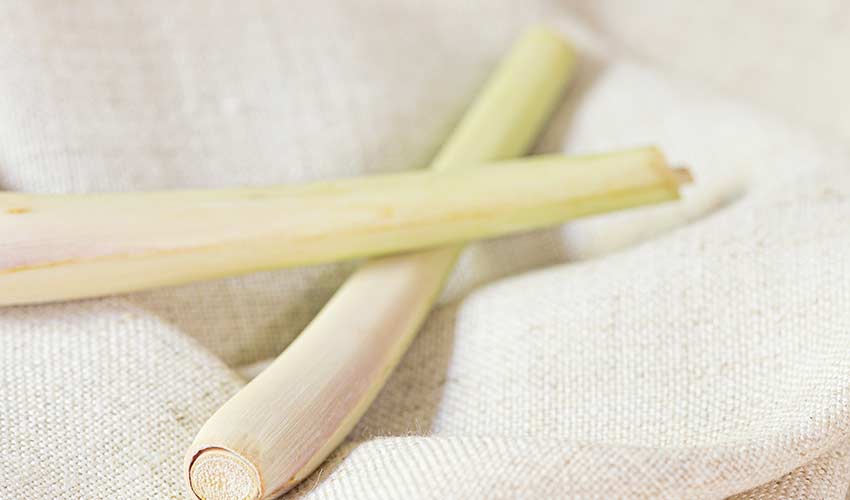Effective Natural Treatments for Shingles
This seems to have turned up more in society since a certain something, but also it's a nasty thing that I've known many people to experience. Actually, I asked Tom about his experience on this too, as we obviously share notes. He had some interesting stories and wrote the Manuka Honey part of this article for me. I hope you never have to experience having it, but you probably landed on this page to understand what it is..Shingles is a viral infection caused by the varicella-zoster virus which is the same virus responsible for chickenpox. It typically manifests as a painful rash that can affect any part of the body. While conventional medical treatments are available, natural remedies can provide relief from the discomfort and aid in the healing process as well. In this article, I will try to explore some effective natural treatments for Shingles. But let's look at why a person may experience this first. Individuals who face an elevated susceptibility to the development of shingles encompass a range of factors that could potentially compromise their immune system's robustness and overall resilience. By understanding the nuanced interplay between immune function, age, recent health events, stress levels, and traumatic experiences, we gain a more comprehensive perspective on the individuals most prone to this reactivation of the varicella-zoster virus.
Weakened Immune System: Particularly vulnerable are those whose immune defences have been compromised, such as people grappling with conditions like cancer. The intricate interplay between immune function and disease susceptibility amplifies the risk of shingles, as the immune system's capacity to maintain a vigilant defence against the reactivation of the varicella-zoster virus (VZV) may be diminished. Age: People surpassing the milestone of 50 years of age find themselves positioned in a demographic where the risk of shingles escalates. This age-related vulnerability is attributed to the gradual waning of the immune system's efficiency over time, coupled with the likelihood of diminishing cellular immunity against VZV. Recent Illness: A noteworthy nexus exists between recent bouts of illness and the heightened susceptibility to shingles. When the body's resources are directed toward combatting a recent illness, the immune system may temporarily falter in its ability to keep the latent VZV in check, thereby providing an opportune environment for shingles to emerge. Stress: The intricate interplay between psychological stress and physical well-being is exemplified in the context of shingles susceptibility. Excessive stress can exert a suppressive influence on the immune response, potentially disrupting the delicate equilibrium that holds latent VZV at bay, thus creating an environment conducive to the reactivation of the virus. Trauma: Experiencing major physical or emotional trauma can induce a cascade of physiological changes that impinge upon immune function. This vulnerability can tip the scales in favor of VZV reactivation, as the body grapples with the aftermath of significant trauma, diverting resources away from the immune surveillance necessary to suppress shingles development.

Oregano: is a commonly used herb that has various health benefits, including antimicrobial properties. While there is limited scientific research specifically on oregano's effectiveness in treating Shingles, some studies suggest that compounds found in oregano may have antiviral properties that could potentially be beneficial against the varicella-zoster virus. Oregano contains a compound called carvacrol, which has shown antiviral activity against certain viruses. However, more research is needed to determine the specific effects of oregano on the varicella-zoster virus. It's important to note that using oregano alone may not be sufficient to treat Shingles. It is always recommended to consult with a healthcare professional for an accurate diagnosis and proper treatment plan. They can provide guidance on incorporating natural remedies, such as oregano, alongside conventional medical treatments to manage shingles effectively. Remember, natural remedies should not replace medical advice or prescribed medications, but they can potentially complement your treatment plan.
Manuka Honey: I actually learnt from a friend's mum all about Manuka Honey for Shingles. It came up in one of my many conversations about health. We know Manuka Honey has unique medicinal properties, the antiviral properties of it fight against a range of viruses, including herpes simplex virus (HSV), which is related to the varicella-zoster virus (VZV) that causes shingles. Applying Manuka honey to shingles lesions might potentially help inhibit viral replication and reduce the severity of symptoms. I personally knew it to work for people before I knew the why, which is fairly typical. It's always science catching up with nature. Manuka Honey also contains compounds with anti-inflammatory properties, such as methylglyoxal (MGO), that could help soothe irritation, reduce redness, and alleviate discomfort when applied topically. Its ability to create a moist environment, promote tissue regeneration, and stimulate collagen production might aid in faster healing of shingles blisters and lesions. Manuka Honey forms a protective barrier over the affected skin, shielding it from external irritants and potential infections. This protective barrier can prevent secondary bacterial infections that sometimes arise from open shingles sores. It has potential analgesic (pain-relieving) properties may offer some relief from the discomfort and neuralgia (nerve pain) associated with shingles. Its application might help ease itching, burning, and tingling sensations. The natural humectant properties of honey help retain moisture in the skin, preventing it from drying out and reducing the risk of cracking or further irritation. It has worked on so many skin issues right up to the big ones, but as Paul has gone into much detail on the other tools, I would definitely say... Take a full spectrum approach, often there is not a single solution but a multiple one.
Vitamin C: Vitamin C is an essential nutrient known for its immune-boosting and antioxidant properties. While it is not a direct treatment for Shingles, maintaining adequate levels of vitamin C in your diet may help support your overall immune system, which is crucial for fighting off infections and promoting healing. Shingles is caused by the varicella-zoster virus, and a strong immune system is essential in combatting viral infections. Vitamin C plays a role in enhancing the function of various immune cells and can contribute to a healthier immune response. However, it's important to note that vitamin C alone may not be sufficient to treat shingles. Antiviral medications prescribed by a healthcare professional are typically the primary treatment for shingles. Vitamin C can be used as a supportive measure to promote immune health and aid in healing. As always, it's recommended to consult with your healthcare professional or herbalist for an accurate diagnosis, proper treatment plan, and advice on incorporating vitamin C or other supplements into your routine. They can provide personalised guidance based on your specific health needs.
B Vitamins: B vitamins play a crucial role in maintaining overall health, including supporting the immune system and promoting nerve function. While they are not a direct treatment for Shingles, ensuring adequate levels of B vitamins in your diet can be beneficial for managing the condition. Vitamin B12, in particular, is known for its role in nerve health and regeneration. Shingles can cause nerve pain and discomfort, and vitamin B12 may aid in nerve repair and alleviate symptoms. (Learn more about Vitamin B12 here.) However, more research is needed to determine the specific effects of B vitamins on Shingles. It's important to note that B vitamins alone may not be sufficient to treat Shingles. Antiviral medications prescribed by a healthcare professional are typically the primary treatment. However, incorporating a balanced diet rich in B vitamins, such as leafy greens, fish, eggs, and dairy products, can support overall health and potentially aid in the healing process.

Lemongrass Tea & Balm: Yes, lemongrass balm has shown potential in providing relief and aiding in the healing process of shingles. Lemongrass balm contains antiviral compounds, such as rosmarinic acid, that may help combat the varicella-zoster virus responsible for shingles. Topically applying a lemon balm cream or ointment to the affected area can help soothe the rash, reduce inflammation, and alleviate discomfort associated with shingles. Some studies have shown that lemongrass balm can help speed up the healing process, reduce the duration of the outbreak, and provide relief from pain and itching. Additionally, drinking lemongrass tea, such as Maarr Tea, may have calming effects and help promote relaxation during the shingles recovery period. In addition, Lemongrass also contains substances that are thought to relieve pain and swelling, reduce fever, improve levels of sugar and cholesterol in the blood, stimulate the uterus and menstrual flow, and have antioxidant properties.
Stress Reduction: stress reduction is beneficial for managing Shingles. Stress can weaken the immune system, making it harder for the body to fight off infections like shingles and potentially prolonging the healing process. By reducing stress, you can support your immune system and potentially enhance your body's ability to heal. Engaging in stress reduction techniques can help alleviate symptoms and promote overall well-being during a shingles outbreak.
Here are a few stress reduction methods you can consider:
Relaxation techniques: Practicing relaxation techniques such as deep breathing exercises, meditation, or progressive muscle relaxation can help calm the mind and reduce stress levels.
Mindfullness: Incorporating mindfulness into your daily routine can help you stay present and focused, reducing stress and anxiety. Mindfulness exercises like mindful breathing or body scans can be beneficial.
Engaging in Enjoyable Activities: Taking time for activities that bring you joy, such as hobbies, spending time with loved ones, or engaging in creative pursuits, can help distract from the discomfort of Shingles and promote emotional well-being.
Physical Activity: Engaging in light exercise, as recommended by your healthcare practitioner, can release endorphins and reduce stress. However, it's important not to overexert yourself, as intense physical activity may worsen symptoms.

Cool Compresses: Applying cool compresses to the affected area can help alleviate the itching, burning, and pain associated with Shingles. Simply soak a clean cloth in cool water, wring it out, and gently place it on the rash. This can provide soothing relief and reduce inflammation.
Calendula: Calendula, known for its anti-inflammatory and antiviral properties, can be applied topically as a cream or infused oil to soothe the skin. As I’ve said before, Lemongrass balm, with its antiviral properties, may also help alleviate symptoms. Drinking lemongrass tea can promote relaxation and aid in recovery.
Aloe Vera: The gel derived from the aloe vera plant has long been used for its healing properties. Applying aloe vera gel directly to the affected area can help soothe the rash, reduce redness, and provide relief from the itching and pain associated with Shingles.
Oatmeal Baths: Taking an oatmeal bath is a time-tested remedy for soothing itchy skin. Colloidal oatmeal can be added to a warm bath to relieve the discomfort caused by Shingles. It forms a protective barrier on the skin, reducing irritation and inflammation.

Foods to Avoid with Shingles
Making certain dietary choices can help support your immune system and overall well-being during the healing process. Here are a few general guidelines:
Processed and Sugary Foods: It's generally a good idea to limit your intake of processed foods and sugary treats. These foods can potentially weaken the immune system and may not provide the essential nutrients needed for optimal healing.
Spicy Foods: Some people with shingles may find that spicy foods can exacerbate the symptoms and increase discomfort. If you notice that spicy foods worsen your symptoms, it's best to avoid or limit them.
Acidic Foods: Consuming highly acidic foods, such as citrus fruits and tomatoes, might irritate the shingles rash or increase discomfort in some individuals. If you experience this, it could be helpful to reduce your intake of acidic foods temporarily.
Alcohol: Alcohol consumption can weaken the immune system and potentially interfere with medication effectiveness. It's advisable to limit or avoid alcohol until you have recovered from Shingles.
Instead of focusing on foods to avoid, prioritise a balanced diet rich in immune-boosting nutrients. Include plenty of fruits, vegetables, lean proteins, whole grains, and foods high in vitamins and minerals. Staying hydrated by drinking enough water is also important for overall health. Remember, these dietary suggestions are general and may vary depending on your specific health condition and any individual allergies or sensitivities you may have. It's always best to consult with a healthcare professional, holistic doctor or registered dietician for personalised dietary advice tailored to your needs.
''The food we eat can be either the safest & most powerful form of medicine or the slowest form of poison.'' – P.H.






















